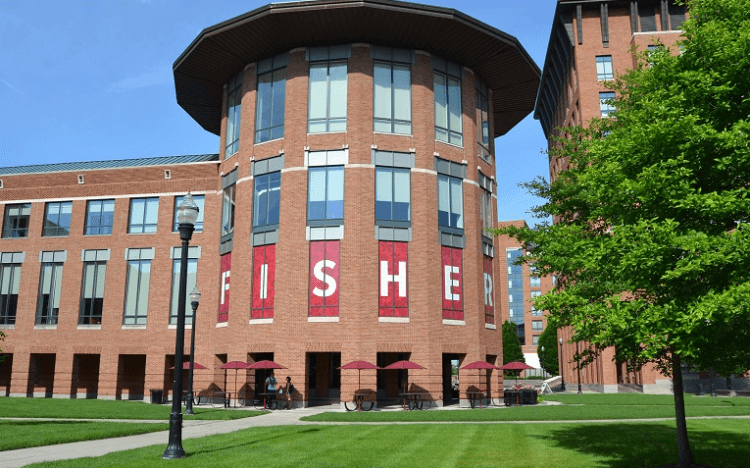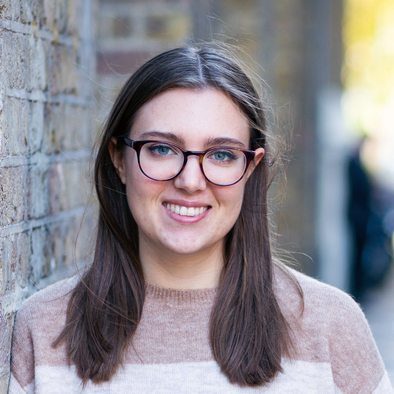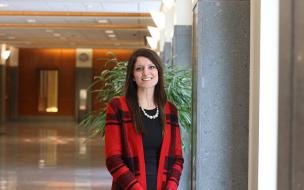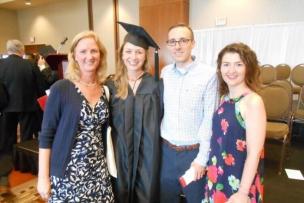According to research from the Graduate Management Admission Council (GMAC), almost half (46%) of all applicants to business programs are considering both an MBA and a business-related master's degree, with students exploring more specialized master’s degrees in areas such as finance and data analytics.
At The Ohio State University Max M. Fisher College of Business, their top-ranked specialized master's programs offer action-based curriculums and impressive career outcomes. Many of Fisher's master's programs have also earned STEM-designation—a crucial differentiator that can offer more job opportunities for students, especially international students.
Thanks to government changes, international students in the US on an F-1 visa who are enrolled in a STEM-designated program can now apply for 36 months of Optional Practical Training (OPT) post-graduation, allowing them to gain practical experience in the US in a job related to their master's degree. A business master's is also a cost-effective way for international students to boost their career prospects—while many MBA degrees can total upwards of $100,000, a business master's degree can often be obtained for less than $50,000.
Fisher's diverse portfolio of graduate programs provides students with a host of alternatives to an MBA degree, such as a Specialized Master in Finance, Master of Human Resource Management, and a Master of Business Logistics Engineering.
BusinessBecause spoke to two master's students at Fisher about why they decided to do a specialized master’s over an MBA, and why Fisher’s master's programs stood out.
Exploring new opportunities in supply chain
“I have an undergraduate degree in mechanical engineering—three-to-four years back I had no idea what supply chain or even logistics was,” explains Visakh Venkitaramanan (pictured).
After his undergraduate degree, Visakh worked as a systems engineer for IT consulting firm Infosys in his native India and found a natural interest for the world of supply chain management. After working for a year as a logistics analyst for a freight company, he decided it was time to get more in-depth knowledge of the industry. “I realized that in order to progress in my career I needed to have a Master degree,” he explains.
While Visakh did consider MBA programs, ultimately, he decided the specialist knowledge acquired on an intensive master's degree would be more helpful for his future career.
“I was kind of clear about what I wanted to do—I wanted to get into a niche area of supply chain consulting and network design,” Visakh explains, and in the end he opted for the Master of Business Logistics Engineering (MBLE) program at Fisher College of Business, taught in conjunction with the Department of Integrated Systems Engineering.
As well as the crucial link to The Ohio State University College of Engineering—“coming from an engineering background, it was the perfect transition for me,” Visakh explains—it was Fisher’s unique location in Columbus, Ohio, that influenced the decision. Columbus is within a 10-hour drive of 48% of companies in America, making it an obvious logistics hub.
After an intensive year on the program, Visakh is certain that he’s gained the skills necessary to go into his desired industry—supply chain network design and consulting. “With this kind of rigorous training, I think I’m ready to face any challenge or any stressful environment,” he says.
“To go into supply chain network design—that requires the quantitative stuff which is definitely not there on an MBA program. But if I had taken industrial engineering I wouldn’t have the business side of things. It was really the best of both worlds.”
From MBA to Master's
Jayaprabha Dhavale (pictured) is in a unique position in that she already has an MBA from a school in India, but decided to pursue the Specialized Master in Finance at Fisher College of Business in order to get a more in-depth view of the financial side of business.
Jayaprabha started her career as a clinical assistant, and she holds an undergraduate degree in Ayurvedic medicine and surgery from a medical college in India. However, after a year and a half in healthcare, she decided to explore her options in management.
“I was always interested in investment and stocks,” she explains, “and at that time doing a management degree was kind of a ‘cool’ option, so I pursued an MBA.”
Against advice from her friends, who told her that human resources or marketing would match her previous experience better, Jayaprabha chose to specialize in finance, and after graduating worked as an equity analyst in India.
However, it was her husband’s move to the US in 2016 that offered her the chance to delve back into the world of finance in the form of another graduate degree.
“I already had knowledge of finance but I wanted to deepen my knowledge,” Jayaprabha explains. “I didn’t have any background in finance per se, and my bachelors was totally different.”
Ultimately, the Specialized Master of Finance at Fisher offered a way to pursue finance in a deeper manner without doing another MBA. “I wasn’t really committed to investing another two years into an MBA,” she says. “This program is kind of a mini-MBA!”
Currently at the midway part of her master's program, how does Jayaprabha think the degree will help her in the future?
“It’s a vigorous program and really diverse, too—10 different countries are represented in the program,” she explains. “I haven’t ever learned in an environment where there’s so much diversity.”
Apart from that, the Specialized Master in Finance program offers students the opportunity to learn technical skills in financial software, such as Bloomberg and Excel, as well as developing the all-important soft skills that employers value so highly.
“The program requires a lot of commitment, it’s a really vigorous 10-month program,” Jayaprabha says. “During those 10 months you will be stressed out, but it will be really worth it!”










